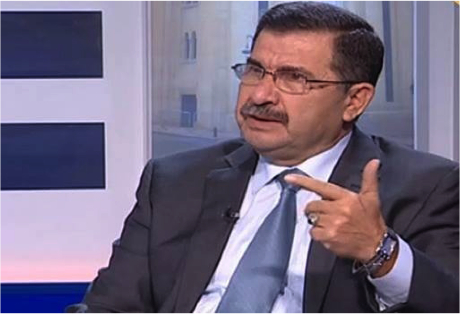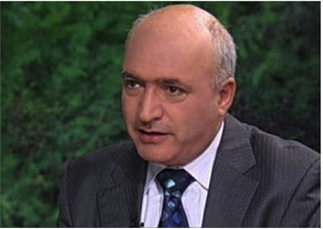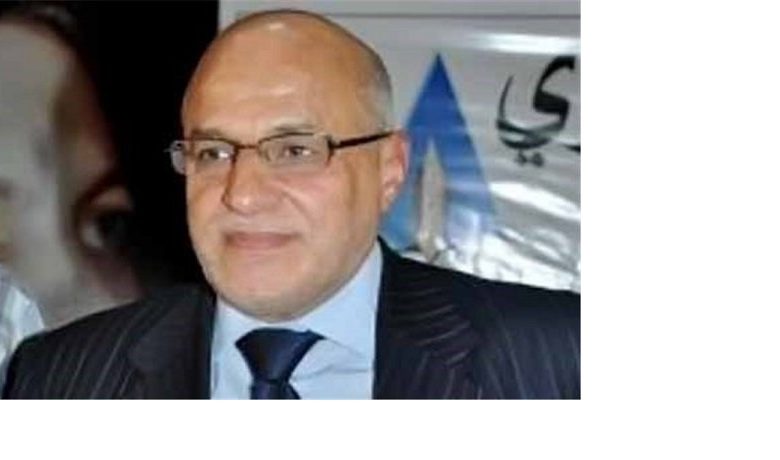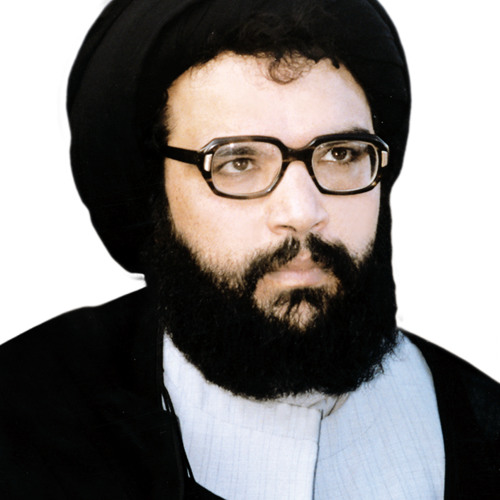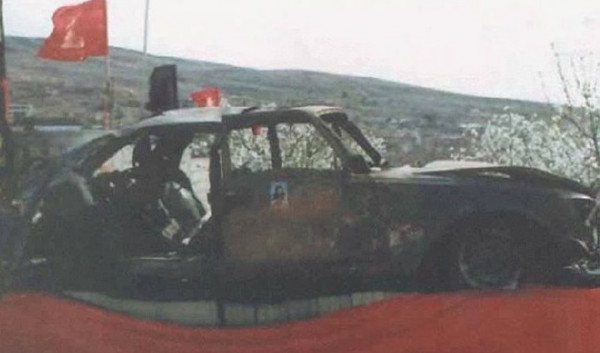The Secretary-General of Hezbollah Sayyed Hassan Nasrallah
On the 6th anniversary of the liberation of the eastern Lebanese outskirts, Sayyed Nasrallah stresses that Israeli threats increase the Resistance’s determination and strength.
The Secretary-General of Hezbollah Sayyed Hassan Nasrallah confirmed on Monday that the Lebanese national strategic Army, People, and Resistance equation has achieved resounding victories.
In his speech on the Second Liberation — the sixth anniversary of the liberation of the eastern outskirts of Lebanon — Sayyed Nasrallah said that there are forces in Lebanon that bet on the survival and victory of the militants in the outskirts, recalling that at the time, the Resistance took the decision and entered the battle with full force.
Sayyed Nasrallah explained that the Lebanese government at the time “did not authorize the Lebanese army to launch an attack on the militants in the outskirts due to US pressure.”
Moreover, he revealed that “the Lebanese army was threatened by the Americans to have any aid cut off if it initiated an attack on the militants in the Irsal outskirts.”
The Lebanese leader hailed the Army, People, and Resistance equation, stressing that it led to resounding victories, citing the liberation of the outskirts as another example of this success.
Resistance in West Bank is purely coupled with Palestinian will
During his speech, Sayyed Nasrallah affirmed that the Resistance in the occupied West Bank goes purely hand in hand with the Palestinian will, noting that “in light of the rising [Palestinian] resistance in the West Bank, the Israeli enemy rushed to attribute it to Iran and depict the events as an Iranian plot, suggesting that the Palestinians there are mere instruments.”
“[With this approach], they [the Israelis] are trying to trick the whole world and the region,” he added.
Sayyed Nasrallah touched on the Israeli officials’ threats, noting that the Israeli enemy, throughout the struggle with the Resistance, carried out massive assassinations but was still unable to break the Resistance’s will.
The Lebanese Resistance leader pointed to the futility of the Israeli threats, stressing that neither verbal threats nor the actual implementation of these threats would stop the Resistance and its movements. On the contrary, it will rather increase its stubbornness, determination, and strength.
Addressing the Israeli enemy, Sayyed Nasrallah said “Israel” must admit that it is in a historical, existential, and strategic dilemma with no way out.
The Hezbollah Secretary-General reiterated the Resistance’s previous position, which warned that any assassination that targets a Lebanese, Palestinian, or Iranian personnel, among others, on Lebanese soil cannot be tolerated.
He underlined that the Resistance “will not allow Lebanon to be an arena for assassinations, and we will not accept changing the existing rules of engagement. The Israelis should be very well aware of this fact.”
Sayyed Nasrallah also called for true solidarity with prisoners in Palestine, as well as political prisoners in Bahrain.
Read more: Hezbollah museum sends message of enemies’ weakness: Israeli media
Syria, allies capable of liberating east of Euphrates
On the Syrian front, Sayyed Nasrallah said the ongoing events the country is witnessing are but part of an American project, in which “the US sought help from a number of regional countries that actually supported it,” stressing that “the actual leader since day one of the war on Syria was the US and the US ambassador in Damascus as per his own admission.”
Sayyed Nasrallah also pointed out that the armed Takfiris were “merely foolish tools [employed] in the American project,” as the US forces returned to Iraq under the pretext of [fighting] ISIS, and under the same pretext, they entered to occupy the eastern Euphrates region.
Sayyed Nasrallah called on the Syrian people to remember “the alternative that they [the Americans] were preparing for,” and the moment they realized that the military project had failed and that Syria had begun to recover, they imposed the Caesar Act and the sanctions which resulted in a harsh blockade.
The Resistance leader added that instead of blaming those who besieged and starved the Syrian people, the blame is directed to the opposite side.
Sayyed Nasrallah highlighted that the most important Syrian oil and gas fields east of the Euphrates are looted by the Americans every day and prevented from returning to the Syrian government, stressing that Syria and its allies are simply capable of liberating the east of the Euphrates, which is an area occupied by US forces.
The Hezbollah chief warned that the fighting in the east of the Euphrates might turn into a regional and international conflict. He also explained that the conflict will not be against the Syrian Democratic Forces (SDF), saying, “If the Americans want to fight by themselves, so be it. This will be the real battle that will change all equations.”
Some seek to turn UNIFIL into Israeli spies
Regarding the Lebanese file, Sayyed Nasrallah pointed out that some sides want to turn the United Nations Interim Force in Lebanon (UNIFIL) into spies for the Israeli occupation.
He said the Lebanese government is seeking to fix a mistake committed last year that violates Lebanese sovereignty, expressing the Resistance’s support for the Lebanese government and hoping that Lebanon’s friends will help make this amendment.
In a related context, Sayyed Nasrallah wondered whether the Lebanese officials would dare to flex muscles in the face of a US envoy, considering that they are now flexing muscles in the face of the French.
Speaking about the Lebanese dialogue, the Lebanese Resistance leader affirmed that Hezbollah is not afraid of dialogue and is ready for it, “because we are not weak, and because we are decision-makers.”
“We do not beg dialogue from anyone.”
Sayyed Nasrallah indicated that those who want a president to build a Lebanese state that confronts Hezbollah rather than a state that solves people’s problems serve the declared, obvious goal of “Israel”.
He said some sides believe that their dreams can only be realized over the wreckage of Lebanon.
The Lebanese leader confirmed that Hezbollah is in dialogue with the Free Patriotic Movement, noting that his party is in dialogue on behalf of itself and not on behalf of the rest of its allies.
Sayyed Nasrallah revealed that the file of administrative and financial decentralization was presented to Hezbollah, stressing that if an agreement is reached on a draft, “we are interested in discussing it with other parties.”
In the same context, he indicated that this proposal consists of a large number of articles and requires a majority for approval in Parliament, stressing that an important period of time awaits Lebanon in September, in reference to the the Lebanese presidential election.
Elsewhere, Sayyed Nasrallah confirmed the continuation of the path of Sayyed Moussa Al-Sadr in resistance and defending the Palestinian cause, as well as in believing in a Lebanon that refuses division and fragmentation.
Sayyed Nasrallah recalled the absence of Imam Al-Sadr and his two companions, saying, “We express our solidarity and stand by our brothers in the Amal movement, who have borne this issue.”
At the beginning of his speech, Sayyed Nasrallah consoled the Lebanese with the death of Talal Salman, the publisher of the Lebanese newspaper As-Safir, describing him as one of the great pillars of the Lebanese and Arab press.
He added that Salman was truly a great fighter and part of the Resistance in its intellectual and media arenas, and supported it in all its stages in Lebanon, Palestine, and the region until the last breath.
Read more: ‘A Tale of Sun and Land’; Hezbollah showcases air-defense system
Related Videos
Related Stories
- Sayyed Nasrallah: We Will Not Allow Lebanon to Be an Arena for Assassinations
- Sayyed Nasrallah: Any Israeli Assassination on Lebanese Territory Won’t Go Unanswered
- Hezbollah Inaugurates Tourist Museum in Baalbek
- Exclusive – Al Arouri: Resistance Axis preparing for all-out war
- Israeli media say Al-Arouri interview for Al Mayadeen ‘harsh’
- Exclusive: ‘Israel’ to face unexpected response if Al-Arouri targeted
- Hamas: Israeli Threats Will Not Mitigate Resistance Power
- International Al-Aqsa Call Conference II commences in Karbala, Iraq
- Hezbollah Sends Resounding Message to ‘Israel’, Takfiri Groups
Filed under: "Israel", American crimes, Israeli Crimes crimes against humanity, Lebanon, Lebanon Islamic Resistance - Hezbollah, Syria, UNIFIL, USA | Tagged: East Euphrates, Ersal, Imam Musa Sadr, Israeli Assassinations in Lebanon, Leb-Second Liberation, Occupied W Bank, Sayyed Hassan Nasrallah, US’ Caesar Sanctions Act on Syria | Comments Off on Assassinations in Lebanon to be met with full force: Sayyed Nasrallah














